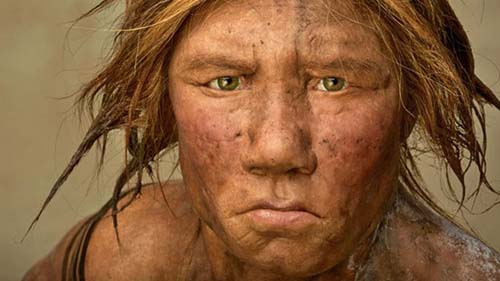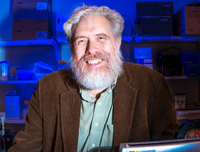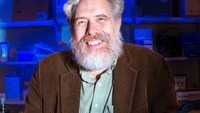Wanted: An “extremely adventurous female human” to give birth to a Neandertal
Source: io9.com

German magazine Der Spiegel has just published an interview with geneticist George Church in which he talks about his work as a biologist and his idea of making humans resistant to all viruses. But he also addresses a topic we’ve discussed before: The idea of cloning a Neandertal.
Church, the author of Regenesis: How Synthetic Biology Will Reinvent Nature and Ourselves, is a pioneer in synthetic biology and was a key player in the mapping of the human genome. He has also helped to set up around two dozen biotech firms.
When speaking with Der Spiegel, he mentioned that we’ll soon have the capacity to clone a Neandertal. "We can clone all kinds of mammals," he said, "so it’s very likely that we could clone a human. Why shouldn’t we be able to do so?"
Here’s a snippet of the interview:
 SPIEGEL: Would cloning a Neanderthal be a desirable thing to do?
SPIEGEL: Would cloning a Neanderthal be a desirable thing to do?Church: Well, that’s another thing. I tend to decide on what is desirable based on societal consensus. My role is to determine what’s technologically feasible. All I can do is reduce the risk and increase the benefits.
SPIEGEL: So let’s talk about possible benefits of a Neanderthal in this world.
Church: Well, Neanderthals might think differently than we do. We know that they had a larger cranial size. They could even be more intelligent than us. When the time comes to deal with an epidemic or getting off the planet or whatever, it’s conceivable that their way of thinking could be beneficial.
SPIEGEL: How do we have to imagine this: You raise Neanderthals in a lab, ask them to solve problems and thereby study how they think?
Church: No, you would certainly have to create a cohort, so they would have some sense of identity. They could maybe even create a new neo-Neanderthal culture and become a political force.
SPIEGEL: Wouldn’t it be ethically problematic to create a Neanderthal just for the sake of scientific curiosity?
Church: Well, curiosity may be part of it, but it’s not the most important driving force. The main goal is to increase diversity. The one thing that is bad for society is low diversity. This is true for culture or evolution, for species and also for whole societies. If you become a monoculture, you are at great risk of perishing. Therefore the recreation of Neanderthals would be mainly a question of societal risk avoidance.
SPIEGEL: Setting aside all ethical doubts, do you believe it is technically possible to reproduce the Neanderthal?
Church: The first thing you have to do is to sequence the Neanderthal genome, and that has actually been done. The next step would be to chop a human genome up into, say, 10,000 chunks and then synthesize these. Finally, you would introduce these chunks into a human stem cell. If we do that often enough, then we would generate a stem cell line that would get closer and closer to the corresponding sequence of the Neanderthal. We developed the semi-automated procedure required to do that in my lab. Finally, we assemble all the chunks in a human stem cell, which would enable you to finally create a Neanderthal clone.
[...]
Read the full article at: io9.com






















